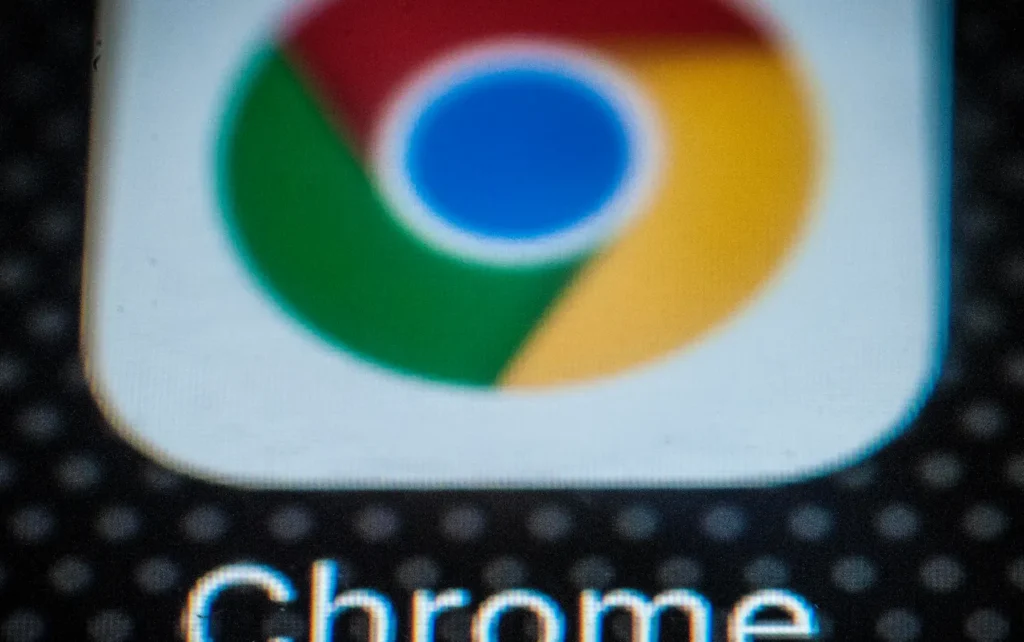If you’re among the billion-plus Google Chrome users on Windows, a noteworthy warning surfaced this week, surprisingly originating from one of the browser’s most ardent critics.
Google Chrome currently commands nearly 65% of the global browser market, far surpassing Apple Safari in second place with less than 20%. Other alternatives, including Microsoft Edge, lag significantly.
In an attempt to challenge this status quo, Microsoft, typically unaccustomed to also-ran positions, is reportedly taking measures to impact the user experience of Chrome on Windows, according to a recent report. The research, commissioned by Mozilla, the developer of the Firefox browser, explores Microsoft’s design practices across its core operating systems (Windows 10 and 11), web browser (Edge), and search engine (Bing).
The findings reveal Microsoft’s use of harmful design practices to influence users towards Edge, employing tactics such as harmful preselection, visual interference, trick wording, and disguised ad patterns to manipulate the user’s choice of browser installation. The report alleges obstruction to discourage users from switching to an alternative default browser and a refusal to switch the corresponding default app for various local web-related file types.
While Mozilla has a clear stance against Chrome, the report primarily focuses on Edge’s competition with Chrome, as the majority of Windows users opt for Chrome by sheer numbers. As a result, the report serves as a cautionary message to these users.
Upon setting up a new Windows desktop, Edge comes pre-installed and configured as the default browser, pinned to the taskbar, and unable to be uninstalled. If a user attempts to install Chrome, the report highlights how Microsoft interrupts the process, citing security and privacy advantages of Edge. Researchers caution that users may be alarmed by the Edge promotional message within the Chrome download page, potentially viewing it as important due to its unusual presence.
These interruptions occur regardless of the browser being installed, but the report underscores Microsoft’s more aggressive approach when users seek to download Google Chrome, intervening multiple times in the user journey.
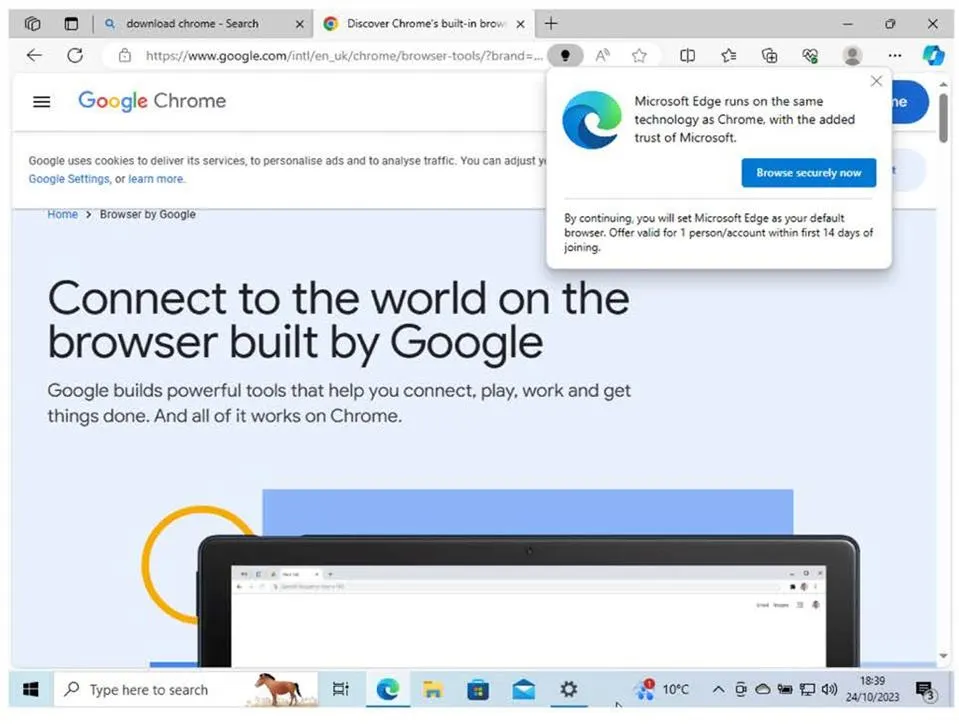
Edge popup during Chrome installMOZILLA'S
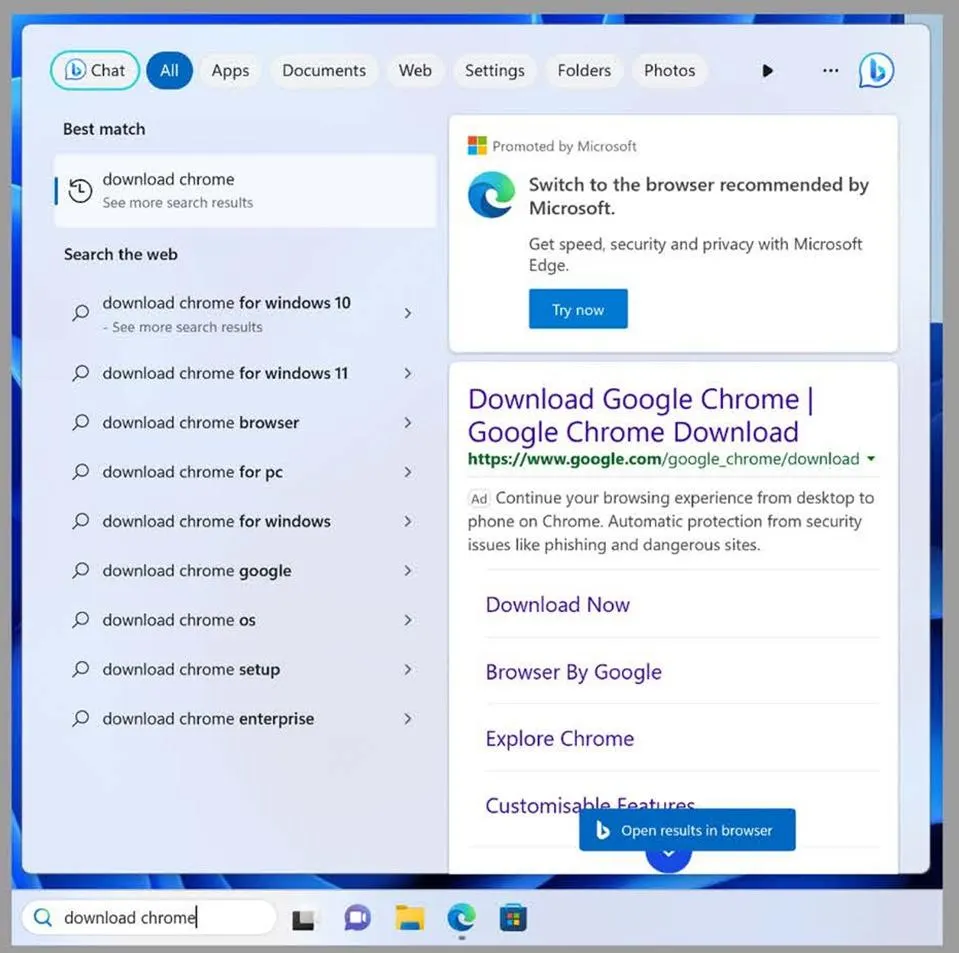
Edge promotion after searching to download ChromeMOZILLA
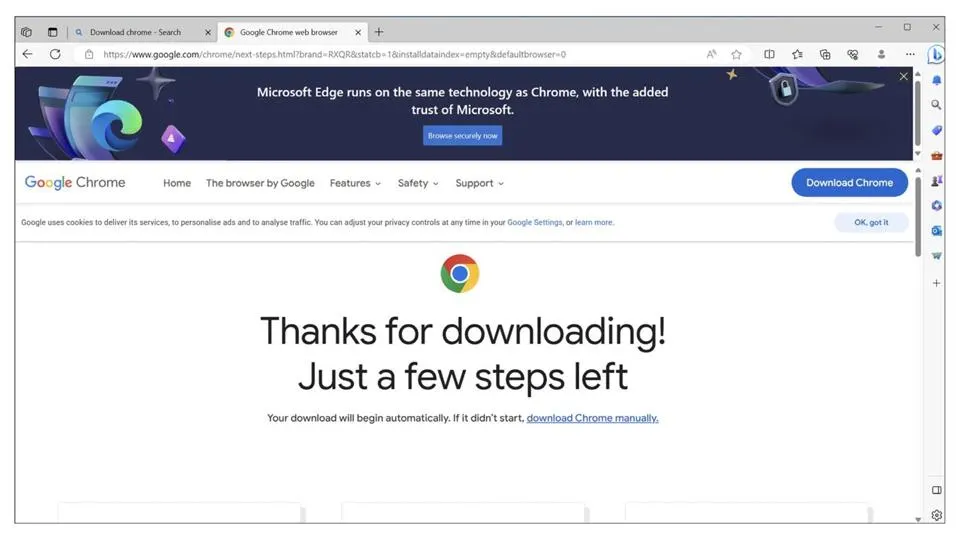
Edge ad injected into Chrome install page itselfMOZILLA
The report highlights additional instances of obstruction, such as a survey appearing during a Chrome installation that emphasizes Edge’s advantages. Describing this survey and its subsequent page as obstructive examples, the report asserts that they contribute to making it more challenging for users to finalize the Chrome installation.
Simultaneously, the report points out that the import of Google data into Edge is presented in a manner resembling a standard setup dialogue, with user preferences not being prominently emphasized. This setup makes it effortless for users to inadvertently click the Apply button, thereby accepting the default settings displayed.
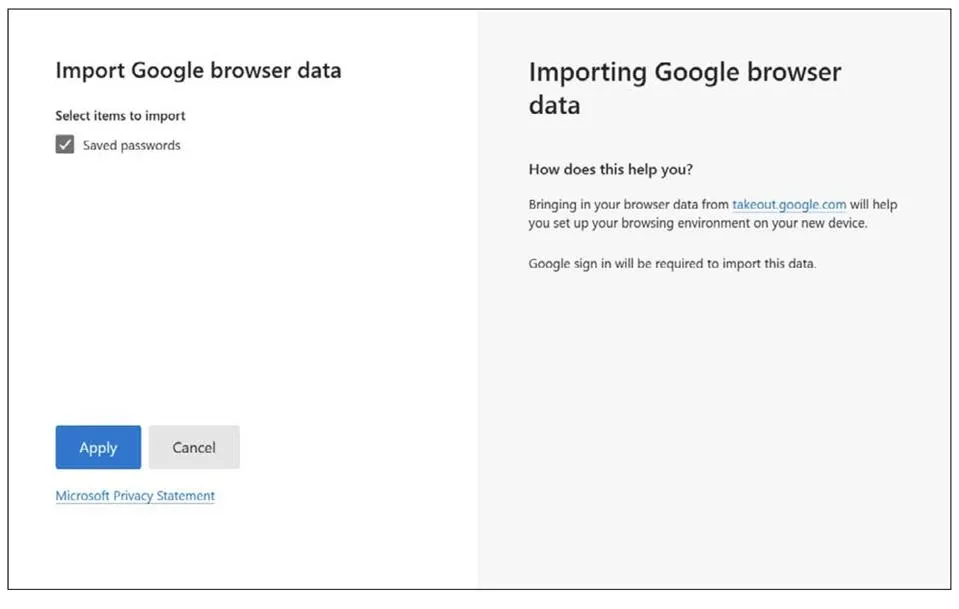
Users asked to import Google data into EdgeMOZILLA
According to the researchers, this conduct initiates as soon as a user initiates a search for browsers. The report provides numerous instances of ads inserted into the search and installation procedure, all seemingly aimed at influencing the user’s choice by leveraging “inside” information about their intended installation.
The scope of the report extends beyond browsers, examining search-related behaviors. It highlights instances where users are prompted to switch from Google’s search engine to Microsoft Bing’s, even within an alternative browser like Chrome, assuming the installation was not discouraged.
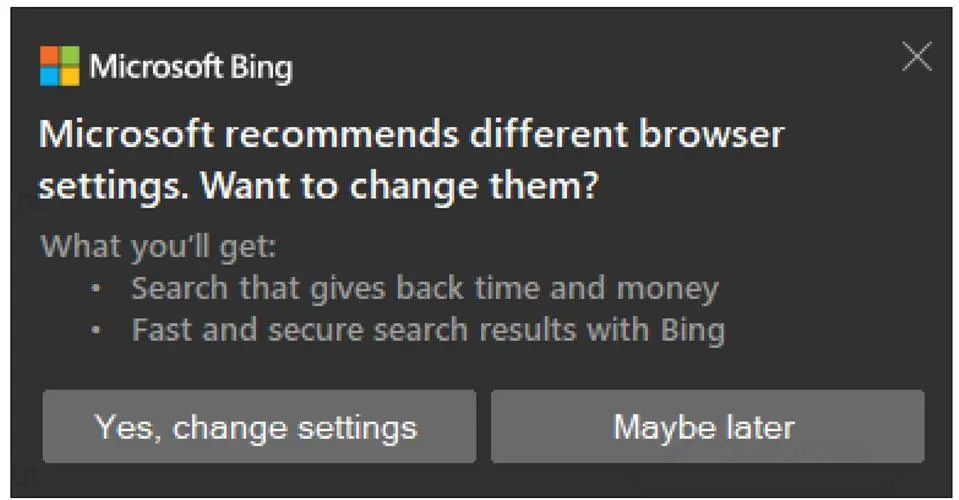
Bing Vs Chrome search setting promptMOZILLA
The report recognizes that “Edge is a relatively minor player. Since Windows is still the dominant OS, it is clear that millions of Windows users have overcome the practices we’ve questioned to successfully download and use Chrome. Microsoft may therefore argue these practices don’t unfairly skew the browser market or user choice.” The competition between Google Chrome and Microsoft Edge doesn’t truly reflect a classic David vs. Goliath scenario. However, the landscape has evolved, with smaller browsers challenging larger players, including Firefox.
Conducted by researchers based in the UK, the study assessed various user journeys on Windows 10 Home and Windows 11 Pro without using a VPN, making their location easily accessible. Consequently, the report does not provide insights into the extent of these practices across other regions.
Notably, concerns regarding Microsoft’s promotion of Edge are not exclusive to Mozilla’s report, as there have been other recent grievances about Microsoft’s efforts to promote Edge.
Despite the recent research, these claims are not unprecedented, and we’ve encountered comparable prompts in the past. Microsoft has historically directed users toward its ecosystem, just as Google has done, cautioning Edge users to transition to Chrome.
The current context for this narrative involves Europe’s DMA and the associated regulations aiming to prevent gatekeepers and gateway platforms from engaging in such practices. The intention is to allow changes to default apps, enable smaller players to compete, and permit the uninstallation of built-in apps if desired.

